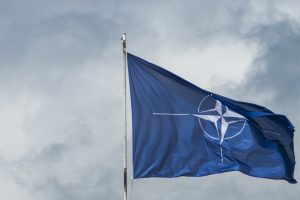Allied leaders at the NATO Summit in Brussels in June began to lay the ground for adapting to the great power competition with China. To that end, they tasked NATO to develop a new strategic concept to be endorsed at the summit next year in Spain. The next concept will be authoritative for alliance strategy until 2030. However, NATO must be clear about the role it can play in adapting to its new challenger from the east.
On one hand, China’s rise combined with the persistent threat from Russia gives increased prominence to NATO as a protector of free societies. China and Russia are both illiberal challengers seeking to undermine Western unity. An influential “NATO 2030” group of experts appointed by Secretary-General Jens Stoltenberg last year recommended that the alliance assume the role of a “democratic bulwark” by beefing up its defense of the liberal order.
On the other hand, NATO cannot veer too much off in that direction and needs to make sure that it stays within its core mandate of ensuring the security and defense of its members – the chief reason why the alliance was created and has endured more than 72 years. In short, NATO must respond to illiberal challenges posed by China to the extent they endanger allied security. The alliance must get this balance straight by focusing on three areas.
First, as NATO is pulling out of Afghanistan, it must resist renewed temptations to “go global,” simply because it is ill-suited and cannot agree to project power beyond the Euro-Atlantic area. NATO should, however, explore the meaningfulness in strengthening its existing partnerships in the Asia-Pacific. Australia, New Zealand, Japan, South Korea are further ahead in their adaptation to China in terms of resilience and supply-chain security and thus may prove useful for the development of joint resilience capacity.
Conversely, NATO is hardly the right forum to gather worldwide counter-coalitions against China on, for instance, human rights issues. Instead, NATO should concentrate on high-tech with military implications, which is an aspect of China’s global rise where the alliance enjoys a clear comparative advantage. As China is pressing ahead with the application of artificial intelligence in its military, NATO has a natural role in the definition of gold standards for interoperability between defense systems of its allies and its partners in the Asia-Pacific.
Second, NATO should clarify the meaning of “resilience” by linking it as closely as possible to collective defense and national security. China is not a territorial threat to NATO, but its acquisition of transportation hubs in Europe and future capacity to neutralize space-based navigation systems (like GPS) present vulnerabilities to NATO force mobility in a crisis situation. Moreover, it should not be forgotten that Chinese 5G networks threaten continued NATO intelligence sharing.
Conversely, NATO is not always the right actor to prevent the intrusion of illiberal powers into the domestic politics of its allies. Increased levels of espionage from both China and Russia call for increased cooperation across the NATO intelligence services. But NATO does not seem to have a natural role in, for example, bolstering police cooperation to fight other types of criminal activity, such as weaponized corruption, illicit party financing, and outsourcing of influence operations, as earlier proposed by President Joseph Biden to face both Russia and China.
Third, NATO should contemplate how it can strengthen internal cohesion in the face of a China that seeks to co-opt elites in illiberal states like Hungary and Turkey. Democratic setbacks are a problem, but it is questionable whether enhanced NATO monitoring and criticism of allies would make any difference. Rather, NATO should focus on military burden sharing as a formula for alliance cohesion. China’s rise highlights why the Europeans must contribute more to the defense of their own continent to allow the United States to focus its military resources on Asia.
In adapting to the China challenge, the United States stands at one extreme: It may have dropped the idea of a global NATO, but wants the alliance to expand into non-military security to contain its growing influence in Europe. The Eastern and many of the Central European countries stand at the other extreme, wanting NATO to remain focused on collective defense with Russia as the main threat. Reconciling the aspirations toward a “democratic bulwark” with the traditional role a defense alliance may strike an appropriate balance for NATO to agree on a realistic China policy by the summit next year.

































